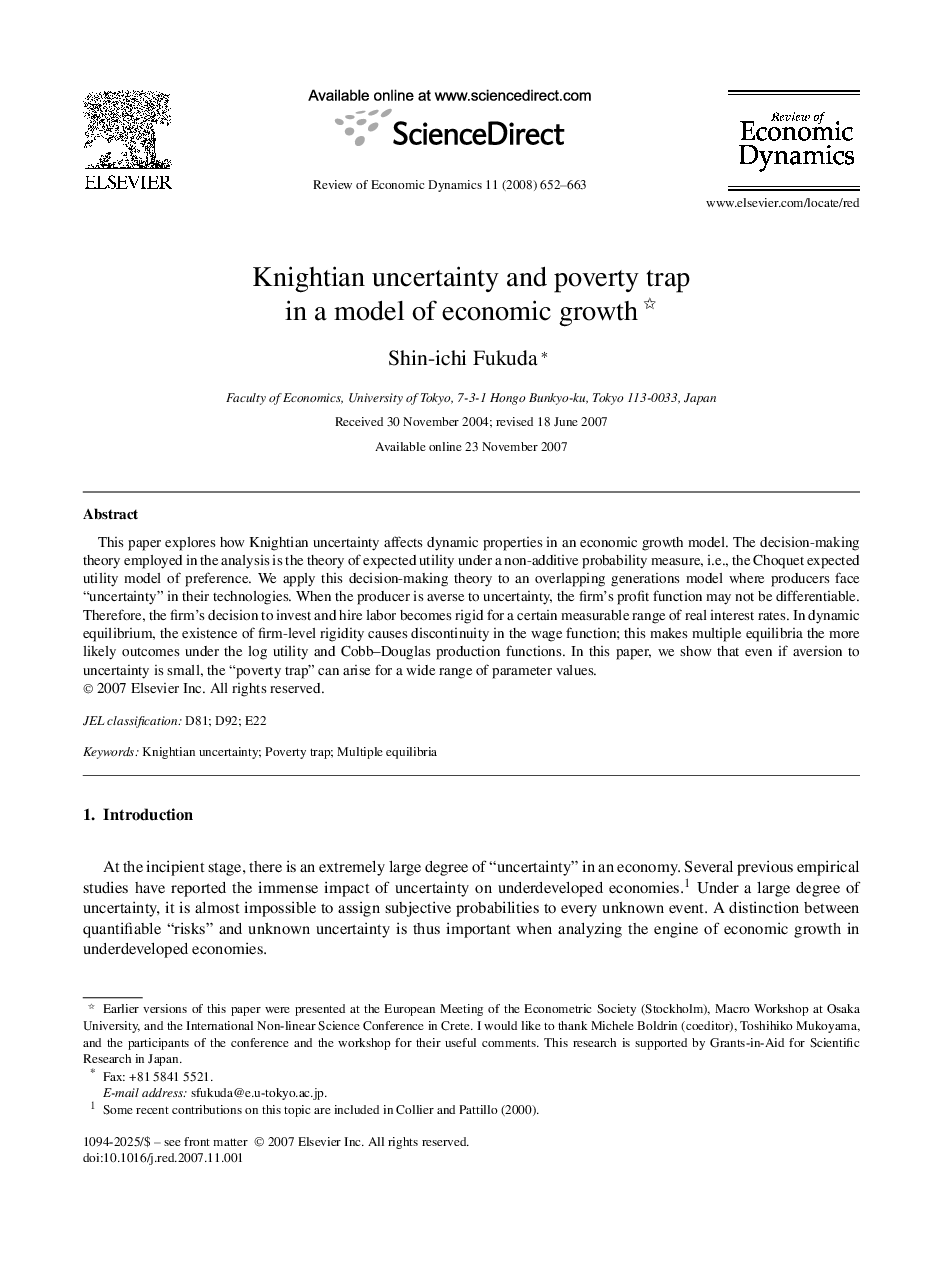| Article ID | Journal | Published Year | Pages | File Type |
|---|---|---|---|---|
| 986447 | Review of Economic Dynamics | 2008 | 12 Pages |
This paper explores how Knightian uncertainty affects dynamic properties in an economic growth model. The decision-making theory employed in the analysis is the theory of expected utility under a non-additive probability measure, i.e., the Choquet expected utility model of preference. We apply this decision-making theory to an overlapping generations model where producers face “uncertainty” in their technologies. When the producer is averse to uncertainty, the firm's profit function may not be differentiable. Therefore, the firm's decision to invest and hire labor becomes rigid for a certain measurable range of real interest rates. In dynamic equilibrium, the existence of firm-level rigidity causes discontinuity in the wage function; this makes multiple equilibria the more likely outcomes under the log utility and Cobb–Douglas production functions. In this paper, we show that even if aversion to uncertainty is small, the “poverty trap” can arise for a wide range of parameter values.
